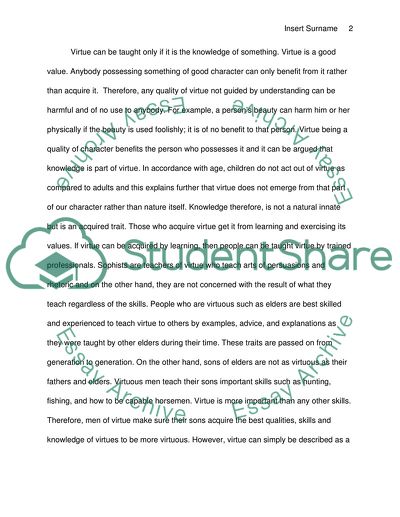Cite this document
(Virtue Is Inherently Acquired and Can Be Taught Essay Example | Topics and Well Written Essays - 1750 words - 10, n.d.)
Virtue Is Inherently Acquired and Can Be Taught Essay Example | Topics and Well Written Essays - 1750 words - 10. https://studentshare.org/education/1609874-ethics
Virtue Is Inherently Acquired and Can Be Taught Essay Example | Topics and Well Written Essays - 1750 words - 10. https://studentshare.org/education/1609874-ethics
(Virtue Is Inherently Acquired and Can Be Taught Essay Example | Topics and Well Written Essays - 1750 Words - 10)
Virtue Is Inherently Acquired and Can Be Taught Essay Example | Topics and Well Written Essays - 1750 Words - 10. https://studentshare.org/education/1609874-ethics.
Virtue Is Inherently Acquired and Can Be Taught Essay Example | Topics and Well Written Essays - 1750 Words - 10. https://studentshare.org/education/1609874-ethics.
“Virtue Is Inherently Acquired and Can Be Taught Essay Example | Topics and Well Written Essays - 1750 Words - 10”. https://studentshare.org/education/1609874-ethics.


